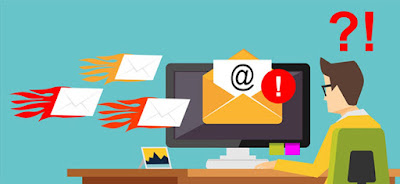WHAT IS EMAIL BOMBARDMENT?

An email bombing is an attack on your inbox that involves sending massive amounts of messages to it. Sometimes these messages are incomprehensible. But more often, they will be confirmation emails for newsletters and subscriptions. Thus, in the latter case, the attacker uses a script to search for forums and newsletters on the internet. Then they sign up for an account with your email address. Each will send you a confirmation email, asking you to confirm your address. Also, this process is repeated on as many unprotected sites as the script can find. The term Email Bombing or Email Bombing; it can also refer to flooding an email server with too many emails. In an attempt to overwhelm the server and disable it. But that's not the goal here; it would be a challenge to cut down on the modern email accounts used. Meanwhile, Google or Microsoft email servers, anyway. So instead of a denial of service (DOS) attack; against the email servers you are using. Also, the flood of messages...













